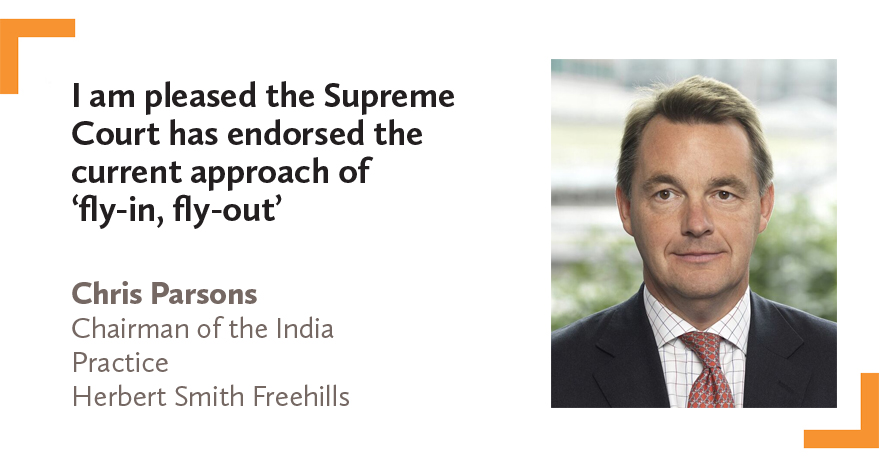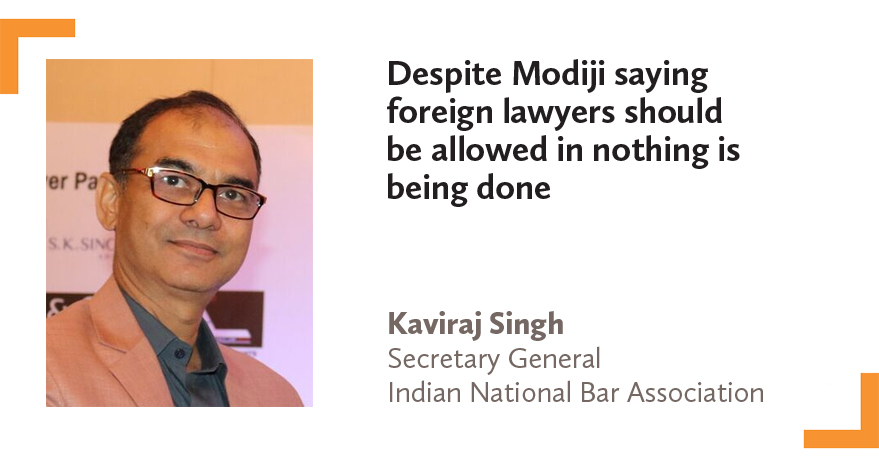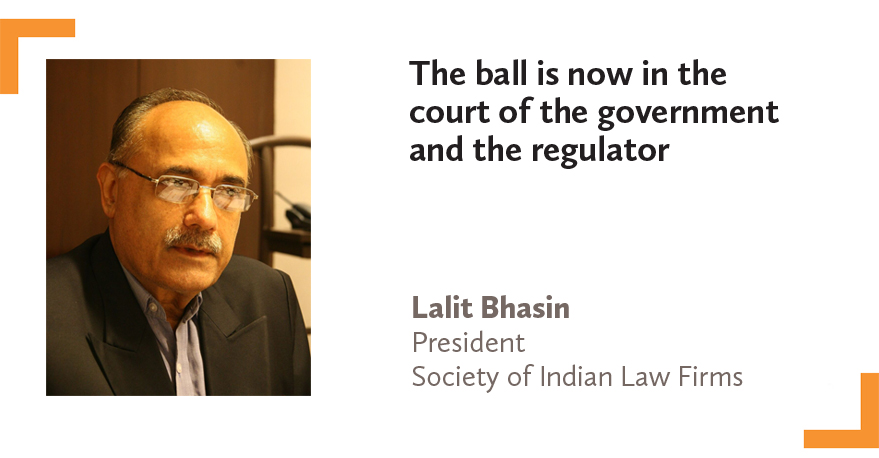The Supreme Court has dealt a blow to moves to liberalize India’s legal market. What now for foreign law firms?
Rebecca Abraham reports
The Supreme Court has declined an opportunity to allow foreign law firms to open offices in India, but ruled that foreign lawyers can continue to visit the country on a “fly-in, fly-out” basis to advise clients on foreign law.
The 13 March ruling by a two-judge bench has also sparked some confusion by implying that foreign lawyers who visit India on a fly-in, fly-out basis may be subject to the Advocates Act, 1961, as well as the rules of the Bar Council of India and the Indian government. The ruling states “the contention that the Advocates Act applies only if a person is practising Indian law cannot be accepted”.
The long-awaited ruling was triggered by appeals to a 2012 Madras High Court decision, and another in 2009 by Bombay High Court. The former said that foreign law firms may “visit India for a temporary period on a fly-in and fly-out basis” to advise their clients on foreign law, while the latter had held that the Reserve Bank of India was not justified in granting permission to foreign law firms to open liaison offices in India.
Legitimizing the status quo
Initial reactions among international law firms have been muted, but amid the frustration there is also relief that the fly-in, fly-out model, which some foreign firms have been operating very successfully, has been legitimized.
“I am pleased the Supreme Court has endorsed the current approach of fly-in, fly-out”, says Chris Parsons, chairman of the India practice at Herbert Smith Freehills. His firm is one of several that have built significant India practices on the basis of the fly-in, fly-out model, benefitting greatly from corporate India’s growing footprint.
“I’m happy that the status quo will continue,” says a Hong Kong based-partner at a leading international law firm with a large client base in India who did not want to be named. “There has been some discussion about the finer points made by the court, but I’m not reading much into it”.
Calls for action
Reaction within India has been more vociferous, with commentators calling on the government to act.
“People are saying openly that foreign law firms should now be allowed into India,” says Kaviraj Singh, the secretary general of the Indian National Bar Association (INBA). “Despite Modiji [Prime Minister Modi] saying foreign lawyers should be allowed in, nothing is being done by the Ministry of Law and Justice”.
Singh is appreciative of efforts being taken by India’s Ministry of Commerce and Industry, which has held meetings with stakeholders, including INBA. He says that officials at the joint secretary and additional secretary levels routinely host meetings to discuss the opening of the market. INBA, which says it has over 10,000 members, has consistently welcomed the entry of foreign law firms and sees it as an important tool for capacity building and providing employment opportunities for young lawyers.
In-house counsel are also making their voices heard. “The Supreme Court verdict has confirmed the current position, [but] the entry of foreign law firms should be allowed as international law advice is a critical part of global business today,” Sameer Chugh, the head of legal at Airtel, told India Business Law Journal. He adds: “Allowing casual visits from foreign lawyers on a fly-in, fly-out basis has been happening for a long time and is welcome as it enables Indian lawyers and business to seek face-to-face advice on foreign law.”
Lalit Bhasin, the president of the Society of Indian Law Firms, sees the ruling as positive. “The ball is now in the court of the government and the regulator,” he says. Bhasin, who has said he welcomes a “phased sequential approach” to the entry of foreign law firms, was previously a vocal opponent of any opening of the market. He has recently been at the forefront of discussions between the government and Indian law firms on how the legal market is to be opened.
You must be a
subscribersubscribersubscribersubscriber
to read this content, please
subscribesubscribesubscribesubscribe
today.
For group subscribers, please click here to access.
Interested in group subscription? Please contact us.





























